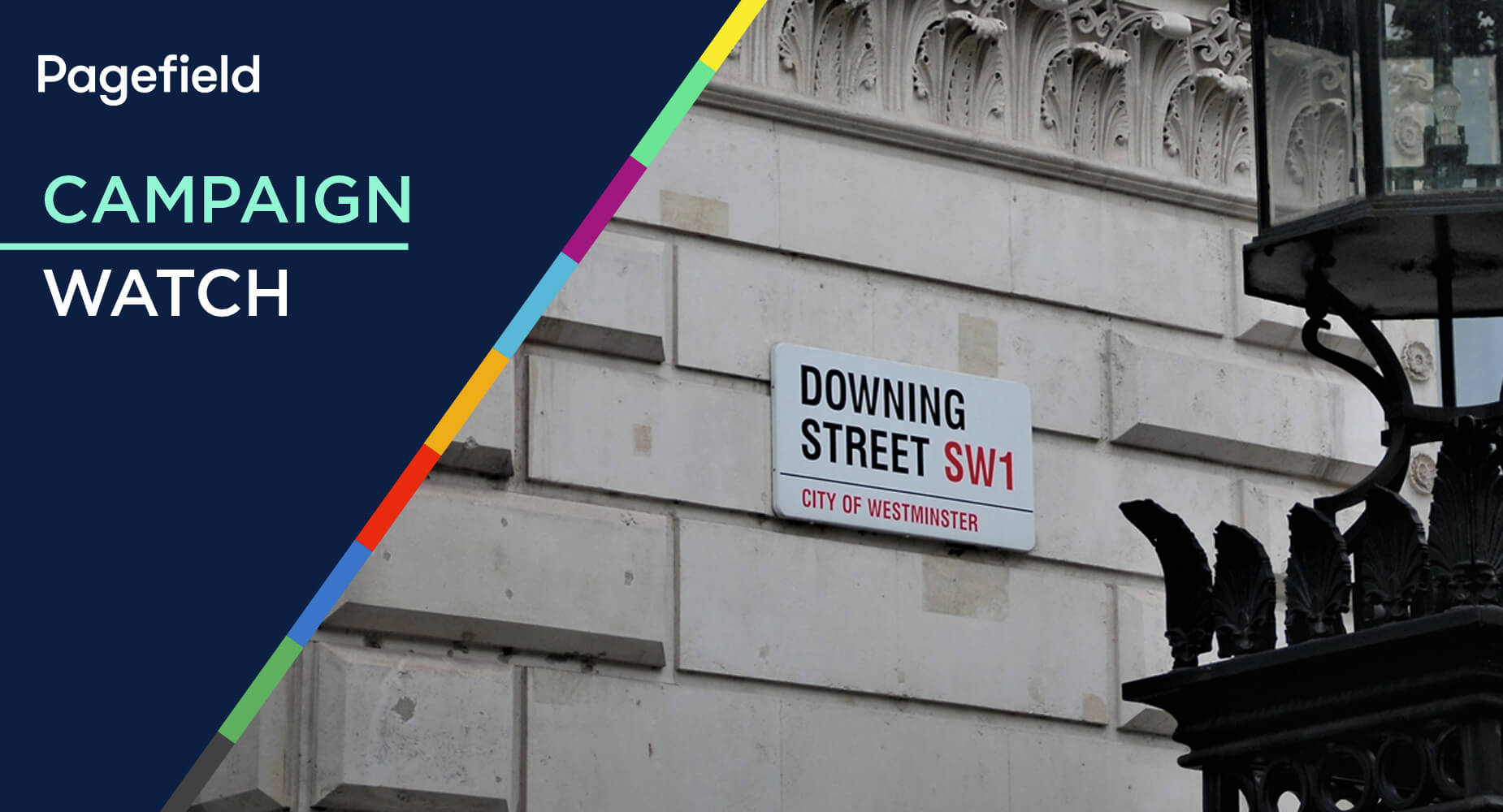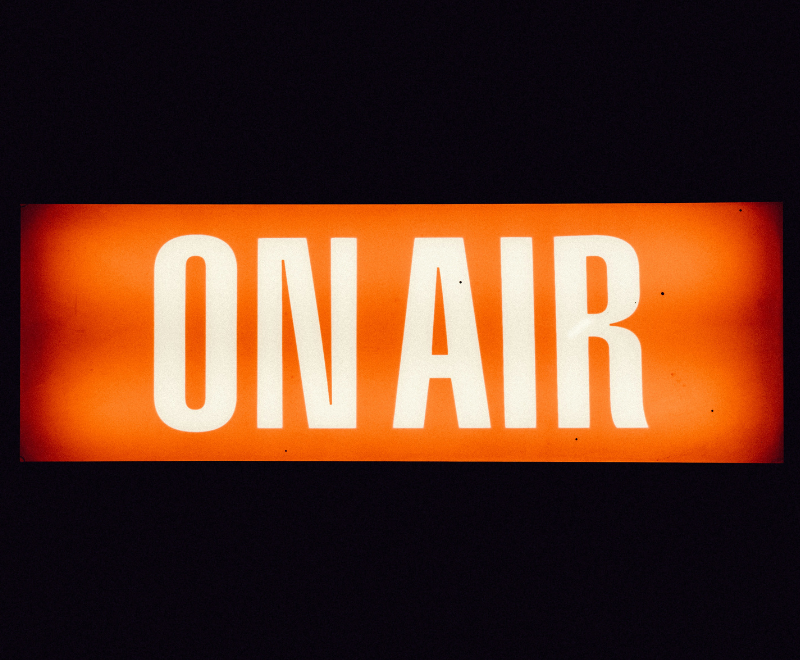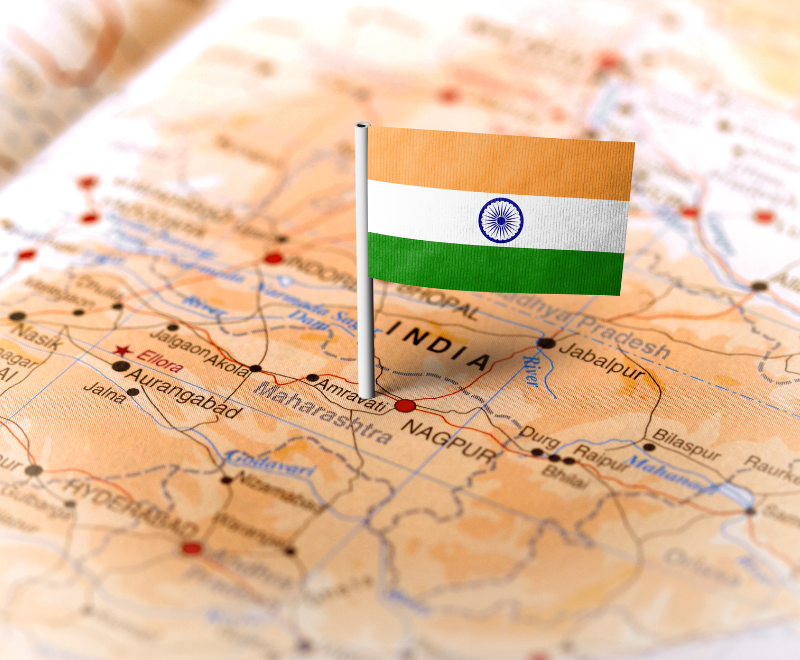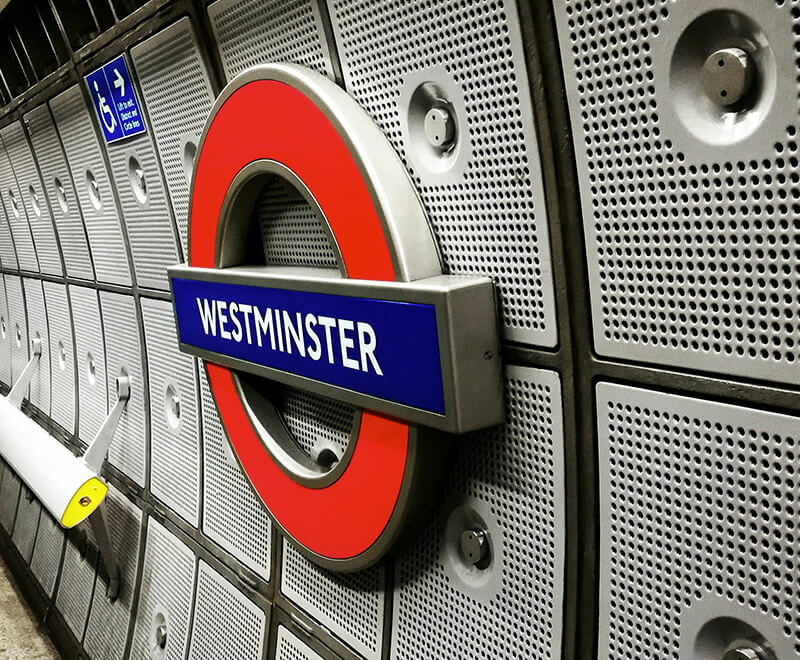Hello and welcome to the fifth edition of Pagefield’s General Election 2019 newsletter, a weekly digest of campaign developments and a look ahead of what to expect in the coming days.
With the campaign now into its final week, we will have a new government within a matter of days. The polls have tightened considerably since YouGov’s MRP poll projected a Conservative majority of 68. We have seen a slight uptick in Labour support – seemingly picked up from the Liberal Democrats – with the Conservative lead then settling at around 10 points. Should this lead hold firm over the next six days the Conservatives can expect to be rewarded with a comfortable but modest majority government.
Yet there is still all to play for. Should the Tories’ lead drop by just a couple of points then their expected majority could quickly turn into another hung Parliament.
Following last Friday’s dreadful attack on London Bridge and a temporary moratorium on campaigning, this week started with a NATO summit. An opportunity for the Prime Minister to appear Prime Ministerial, the event in Watford should have been the place for Boris to position himself as a global leader with a strong head for security policy. Yet the most memorable moment from the whole summit was being caught on a ‘hot mic’, encouraging Justin Trudeau to make fun of US President Donald Trump. It’s not quite as bad as Gordon Brown managed, but one can presume that it is not helpful to US trade talks.
Elsewhere, and with impeccable comic timing, Labour launched a commitment to cut rail fares by a third and to simplify the ticket pricing system. This might have made a positive splash at another point in the campaign but was slightly ruined by the fact it coincided with the start of a 27 day RMT-led strike on the South Western Line. The party sought to reclaim momentum on Friday morning with the publication of a new Small Business Manifesto but was overshadowed by an issue that has dogged Labour – and Jeremy Corbyn in particular – throughout the whole campaign.
On Friday morning the Times published a report on the Jewish Labour Movement’s submission to the Equality and Human Rights Commission’s (ECHR) inquiry into Labour Party antisemitism. The article, based on evidence given by party staffers, members, MPs and peers, directly implicates the Labour leader in enabling and engaging in antisemitism. The final ECHR report, expected to be published in the new year, will make for grim reading.
But that doesn’t mean that Boris Johnson made it through the week unscathed. After telling Andrew Marr last Sunday that he was willing to be interviewed by “any interviewer called Andrew”, a certain Mr Neil lost his patience with the Prime Minister on Thursday. After hosting interviews with Jeremy Corbyn, Nicola Sturgeon, Jo Swinson and Nigel Farage, Andrew Neil directly challenged Boris with a direct-to-camera appeal to submit himself to a 30-minute interview.
Telling the Conservative leader that “we have an interview prepared. Oven-ready, as Mr Johnson likes to say”, the veteran broadcaster reeled off a list of questions he wanted to ask him. Many of them focused on a question that has risen repeatedly since he became Prime Minister – can voters trust Boris Johnson? While his strategy of avoiding scrutiny may feel as though it has paid off so far, the clip has been shared millions of times online and may well cause the electorate to stop and ask themselves the same question in the run-up to polling day.
Views from the doorstep
Rebecca Lury, Pagefield Partner, Labour PPC for St Albans: The first thing you notice on the doorstep after a short journey out of London and away from the Westminster bubble is a diminishing interest in Brexit. Voters want reassurance on a wide spectrum of issues. Local transport, fixing potholes, easier access to a GP – political answers to these topics are what will shape decisions made at the ballot box.
These issues aren’t being picked up by national media as much as they were in 2017 either. While the #LabourDoorstep was a frequent talking point in the run-up to polling day, the 2019 campaign appears to be focused entirely on Jeremy Corbyn, the Shadow Cabinet and the nationwide impact of policies such as privatisation. There’s a chance this is contributing to a regional sense of detachment from Westminster and Fleet Street.
And of course, the onset of winter is taking its toll. It is increasingly cold, wet and windy, and only the most dedicated canvassers are out. Depending on the weather over the next week, the result of next Thursday’s election may well depend on which party’s doorknockers are most capable of braving the cold.
Joshua Lambkin, Pagefield Associate Partner, Conservative Party Campaigner: For those activists out in 2017, many might have felt a sense of déjà vu during the first few weeks of the campaign. A strong personality cutting through on the doorstep and factory floor, a sense of national leadership and vision. Fortunately, this time round Tory policy wonks have managed to avoid throwing the party’s base under a bus with misguided commitments on social care. Quite the opposite: ‘lifelong Labour voters’ (excuse the cliché) are flirting with voting for Boris. The Tories’ entire election strategy has relied on getting these voters over the line, particularly those who voted Leave in 2016. And it appears to be working.
ELECTION BREAKFAST LINE UP: Our post-election breakfast is now just three weeks away. Chaired by renowned election broadcaster Alastair Stewart, we will be joined by Miranda Green (Deputy Opinion Editor, Financial Times and former Liberal Democrat advisor), Andrew Pierce (Consultant Editor, Daily Mail), Kevin Maguire (Associate Editor, Daily Mirror) and Jill Rutter (Senior Fellow, UK in a Changing Europe). We hope you can join us for some strong coffee, a hearty breakfast and what promises to be a fascinating discussion – whatever the result.
To RSVP or for more information please contact: RSVP@pagefield.co.uk
Policy of the week
Following the London Bridge terror attack, domestic security dominated the political agenda for large parts of this week. This came despite the father of one of the victims, along with a host of academics, urging candidates not to politicise the incident.
Early in the week, the attack incited a war of words between the Conservatives and Labour over how to deal with convicted terrorists being released from prison, after Boris Johnson blamed a “a leftie” Labour government for introducing legislation on automatic prisoner release. Jeremy Corbyn, meanwhile, sought to point the finger of blame at Tory budget cuts and the invasion of Iraq.
However, despite the incident taking place under a Conservative government, new YouGov data shows that the public are twice as likely to trust the Tories to handle issues of security and terrorism than Labour. The Conservative manifesto has widely been interpreted as ‘low risk’ but being tough on crime is clearing resonating with voters. With under a week to go until polling day, can anything now shift the dial in Corbyn’s favour?
Brightest star
Plaid Cymru Leader, Adam Price, is our brightest star this week following an impressive performance in the seven way ITV election debate. The relatively unknown contender from Carmarthen was up against a few big hitters, but Price confidently landed a couple of sucker punches that left his opponents reeling. Price began his attack with a few jabs at Prime Minister Johnson, who he described as not “fit to be in public life” due to alleged homophobic slurs – a criticism he also extended to President Trump. But it was Labour’s Richard Burgeon who Price dealt his knockout blow. In what ITV’s Richard Peston called the “moment of the night”, Price questioned Burgon on Labour’s social care policy in Wales, leaving Burgeon – literally – speechless. Watch the full exchange here.
What impact Price’s efforts will have at the ballot box, and ultimately Welsh independence, is difficult to predict. However, we can confidently name him as our top performer this week. Bravo.
Fakest news
Labour HQ appeared to have landed a powerful message on taxation earlier in the week when the Mirror splashed that Corbyn would be putting £6,716 back into the pockets of households up and down the country. Combine this with some rhetoric about “fat cats” and “rip-off Britain” and you have a very compelling offer for voters.
But the figures were not able to withstand scrutiny for long. As Robert Colvile from the Centre for Policy studies was quick to point out, the party’s methodology was littered with errors and (in his words) “naked deceit”. Even by their own questionable calculations, the figure was out by a factor of 10 and involved a very liberal interpretation of the term “average household”. The whole stream of consciousness thread is worth reading if you have not already.
Thorough and conclusive scrutiny has been in short supply throughout this election campaign, but the Labour Party does appear to have sounded the retreat on this one in the last few days, no longer pushing it out in interviews or press releases. Perhaps a victory for the facts in the battle against fake news?
Highest climbdown
With just a week to go until polling day, three Brexit Party MEPs, including Annunziata Rees-Mogg, sister of the Commons leader Jacob Rees-Mogg, resigned the whip to back Boris Johnson’s Brexit deal. A fourth, former CBI Director General John Longworth, was expelled for disagreeing with Brexit Party direction.
The resignations underline the debate that has raged within the Brexit Party throughout the General Election, with many within the party worrying that their candidacies are ultimately enhancing the chances of a hung parliament and yet another delay to, or indeed cancellation of, Brexit. It also points to why the party is languishing in the polls at around 3%. The resignations up the pressure once more for Nigel Farage to embrace the ultimate climbdown and withdraw all Brexit Party candidates prior to the election. But we suspect Nigel’s not for turning.
Hottest take
A shout-out must go to Burger King’s bus that went viral this week – a light-hearted but clear “grilling” of Vote Leave’s infamous bus that featured heavily in the 2016 referendum campaign. Opinions aside, Burger King nailed this one.
Misjudged tweet of the week
Following an interview with ITV This Morning presenters Phillip Schofield and Holly Willoughby, Boris Johnson tweeted what appeared to be an innocent and, somewhat, awkward, attempt at a selfie. Yet, the Conservative Leader managed to spark ‘security concerns’ once it appeared that the snap dad been taken with a Huawei smartphone – just 24 hours after suggesting the UK will comply with Donald Trump’s stance on banning the Chinese firm’s equipment within the country’s 5G network.
Gaffe of the week
The Leader of the Labour Party and potential future Prime Minister has been awarded this week’s gaffe following his blunder over the Queen’s Speech. When asked by Julie Etchingham if he tuned into the annual broadcast on Christmas Day, Mr Corbyn mistakenly referenced that “it’s on in the morning” before being embarrassingly corrected by host Julie Etchingham telling him that it’s aired at 3pm in the afternoon.
Although it’s a mistake that can easily be made – and really would it have been that bad if he said he didn’t? – the ordeal has been made a whole of a lot worse by defences that Corbyn must watch it on “catch up”…before it is broadcast.
Polls
No dramatic changes in the polls as we step into the final week of the campaign, with a small surge for the two main parties and a minor dip for the Lib Dems.
What to expect next week
The final week of the election will see both parties driving home their key messages to the point where voters are muttering “get Brexit done” or “time for real change” in their sleep. Both Labour and the Conservatives will be looking to squeeze the last few votes out of the Lib Dems and Brexit Party respectively as they know that the difference between a Tory majority and a hung parliament will come down to a few hundred votes in a handful of critical seats.
The big set piece moment will be the final BBC debate between Johnson and Corbyn tonight (Friday) which both leaders will be hoping will give them the momentum heading into the polls next Thursday.
Rumours have reached Pagefield HQ that Labour‘s Rebecca Long-Bailey, who has long been touted as a successor to Corbyn should he lose, has done an interview with the Times for Saturday. Coupled with this extremely professional “not a leadership video” published at the start of the campaign, some are speculating that Labour HQ have already seen the writing on the wall for project Corbyn and are lining up their next leader.
On election day itself the polls open at 7am and close at 10pm, when BBC, Sky and ITV will release a joint exit poll conducted by Ipsos MORI. This will give us the first indication of how the election has gone. If you fancy a slightly later night, some key seats are estimated to come through by around 2.00 am. If the Conservatives have taken places like Workington (1.00 am), Darlington (1.30am) and Wrexham (2.00am) we will likely be heading to a Conservative majority.



